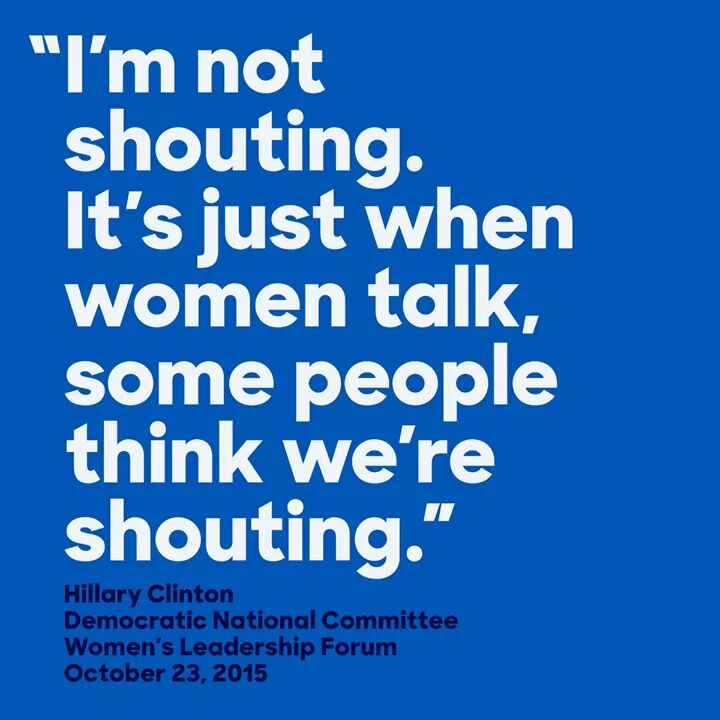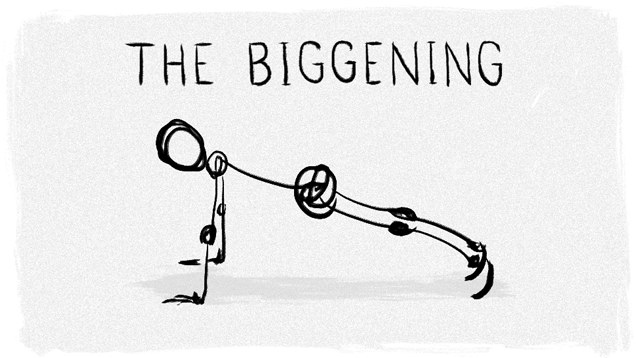I was on Facebook this morning and I teacher friend of mine had posted the following image from Hillary Clinton's Facebook page:


It made me laugh because yesterday had been, as it is each Friday, discussion day in AP Language and Composition. It is a day I always look forward to and the 11th graders challenge me, make me mad, and engage in amazing conversations about a multitude of topics and readings. This week they had read and analyzed The Declaration of Independence (you might have heard of it) and a lesser known document known as The Declaration of Sentiments by Elizabeth Cady Stanton. The Seneca Falls Keynote Address was given July 19, 1848 more than 60 years before women's suffrage would finally achieve one of his greatest goals in getting the 19th amendment to the constitution passed and guaranteeing women the right to vote. It includes lines like this:
The history of mankind is a history of repeated injuries and usurpations on the part of man toward woman, having in direct object the establishment of an absolute tyranny over her. To prove this, let facts be submitted to a candid world.
Teaching in a STEM school with 75% boys, I tend to push the lens of gender and rights issues more than I might if the scales were more balanced. It's fascinating to watch their thinking challenged and shift with regards to whom they are in relation to the women in their lives while thinking about modern definitions of what it means to be a man and masculine. Because they are in 11th grade, they all, boys and girls alike, tend to rely on the emotional appeal or pathos of an argument rather than looking towards logic and evidence to support a position. They don't yet see how both can work together to create a truly effective argument.
As I watched yesterday, it was interesting to see the differences in how students spoke when they brought something to the conversation. The young men: confident, assertive, balanced tone and volume-- not too loud, not too quiet. The young women were either meek and quiet, unsure of the validity of their position and as a result coming across as diminutive and subordinate or forceful and assertive with their thinking, but yes--the volume was louder.
It was not until I read the quote from Clinton that it clicked. Volume is equated with emotion, emotion is linked to women (where men are logical). Men who speak at a softer timbre are seen as weak, feminine. Gender roles at their finest.
In doing a little research about women and volume when speaking I came across a website and blog on public speaking. In the comvort.com post "Women in leadership-- what makes public speaking so important to them?" the author raises the following points:
"Control your voice. Women should learn to control their tone of voice when holding presentations. They should stay away from sentences that seem like questions. Raising your voice at the end of a phrase creates confusion. That’s why you should listen to yourself speak first. Do that in private in front of the mirror, or better yet, record yourself speak. It will be easier for you to spot errors, not to mention that if you like what you hear your level of confidence will automatically increase too. Statements should sound like statements, so lower your tone and keep things casual."
Keep things casual. Don't be or sound too serious, ladies. Sigh.
Keep things casual. Don't be or sound too serious, ladies. Sigh.
This morning as I think about the rhetoric around how men and women speak to one another I have to question: how do I support my young women with finding the balance between meek and yelling and for my young men, how do we shift the thinking that when women are emphatic or passionate they are yelling. Just because you're loud, doesn't make you right despite seeing countless examples of this in the media. Do young women think that they need to get loud to be heard both literally and figuratively?
Ultimately, I want all my students to speak up and speak out. To find their voice and unique point of view. How do we support all people with being heard and not questioned or dismissed?







